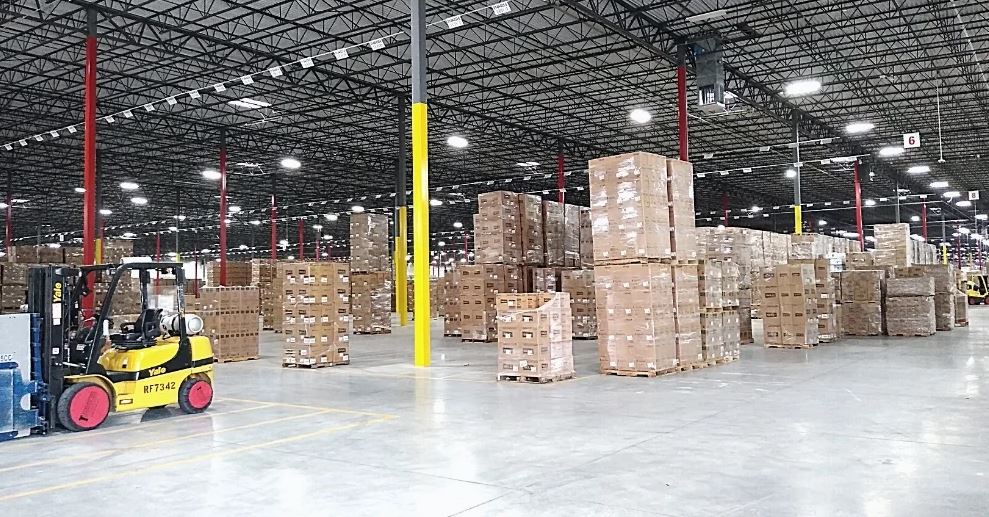For many Americans, no backyard barbecue or holiday celebration is complete without a stack of red Solo cups. Now Dart Container, the manufacturer of this popular product, will have a presence in Delaware’s own backyard.
Dart Container Corporation — not to be confused with DART, the Delaware Transit Corporation — will be the first tenant in the Delaware Logistics Center in New Castle near Delaware City. The site is Dart’s first location in Delaware, and the center is the first project in the state for NorthPoint Development.
Dart will occupy a million square feet on the new campus, where it will serve “customers who order a tremendous amount of Dart products,” says Bob Markus, director of distribution for the Michigan-based company.
Dart’s customers don’t lack options. The company manufactures more than 3,000 packaging products from a variety of raw materials for the foodservice industry, including cups, plates, containers and lids. Some of these items have been in high demand, given that many restaurants have depended on takeout during the COVID-19 pandemic.
The global company has more than 30 locations in four countries and about 14,000 employees. The Delaware center will employ about 60 to 70 people.
And it all started in a small machine shop in 1937. “We’ve been in business for 60 years and have seen tremendous changes in the marketplace through the decades,” Markus says.
Dart Container – A Legacy of Innovation
William F. “WF” Dart founded Dart Manufacturing Company to make plastic key cases, steel tape measures, ID tags for the armed services and children’s toys. His son, William A. “WA” joined the company in the 1950s and invented machinery to manufacture foam cups. The impetus was a new, lightweight material — expandable polystyrene — which keeps items hot or cold for prolonged periods.
Dart shipped its first order of 6-ounce foam cups by 1960 and in 1962 began offering customized print cups, 8- and 12-ounce sizes and retail cups for consumers. By 1963, Dart Manufacturing Company had become Dart Container Corporation.
Complementary products soon followed to fuel society’s to-go trend. Dart began offering everything from foam bowls to spout lids to plastic cutlery and dinnerware.
“We’ve always partnered with our customers to innovate new food and beverage packaging to fill the needs of restaurants — both national franchises and mom-and-pop businesses — and coffee shops, healthcare facilities, entertainment venues and academic institutions,” Markus says.
The company also has kept a keen eye on new markets. When supermarkets began selling prepared foods and installing salad bars in the 1990s, Dart was there with clear deli containers. It then stepped up when convenience stores entered the foodservice arena.
In 2012, Dart doubled its size with the purchase of Solo Cup Company, which was founded in 1936. At the time of the acquisition, the Illinois-based manufacturer had 7,500 employees and 20 plants and distribution centers worldwide.
Breaking New Ground
The red Solo cup might be a signature seller, but Solo’s first product was the paper cone, which became a mainstay alongside water coolers in offices, hospitals and other public places. Dart still makes the cone along with the foam cups that launched the business.
Today, products are made from paper, plastic and sugarcane and encompass an array of environmental profiles, from recovery to recycling to composting. “We’re always innovating to create sustainable packaging solutions,” Markus maintains. “Dart is an industry leader in providing access to recycling.”
Dart, which has two distribution centers and a large manufacturing facility in Maryland, chose Delaware for its strategic location. “It enables us to consolidate inventory in a single location that serves our East Coast customers more efficiently from a trucking and logistics standpoint,” Markus explains.
The COVID-19 pandemic won’t delay the New Castle distribution center’s opening, he adds. “Dart has implemented comprehensive protocols at all facilities to maintain a safe and healthy work environment for employees, vendors and visitors,” he says. “We will continue to use the same approach at our Delaware facility.”



